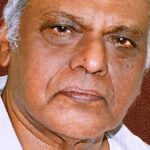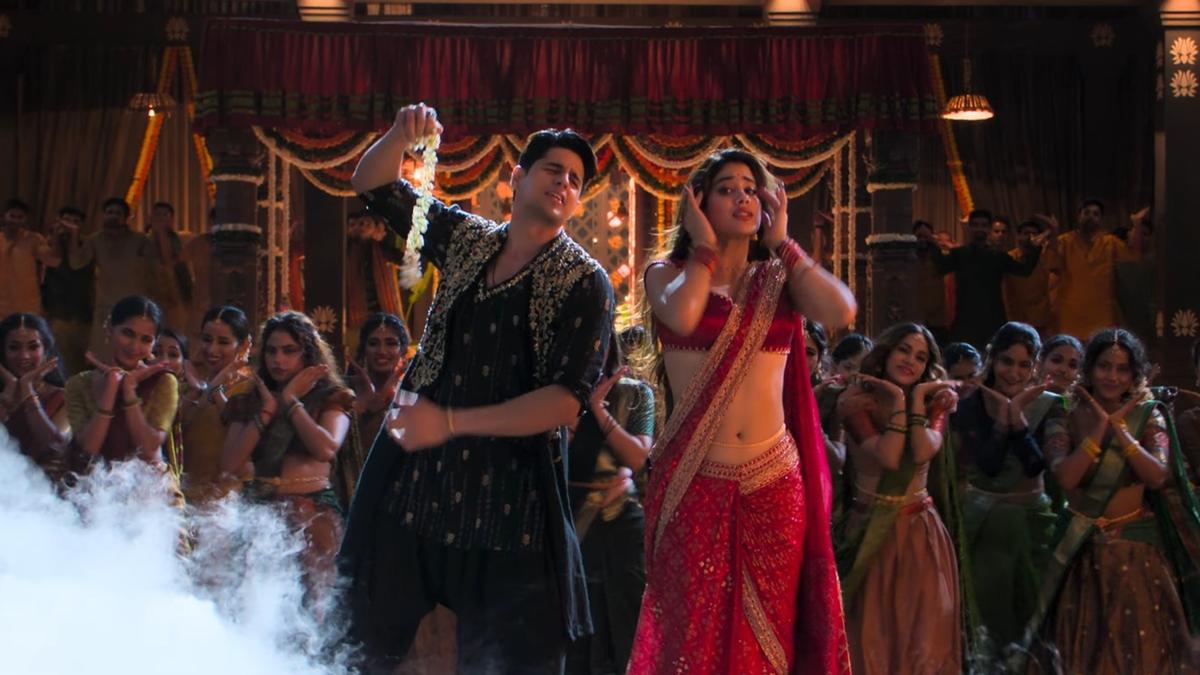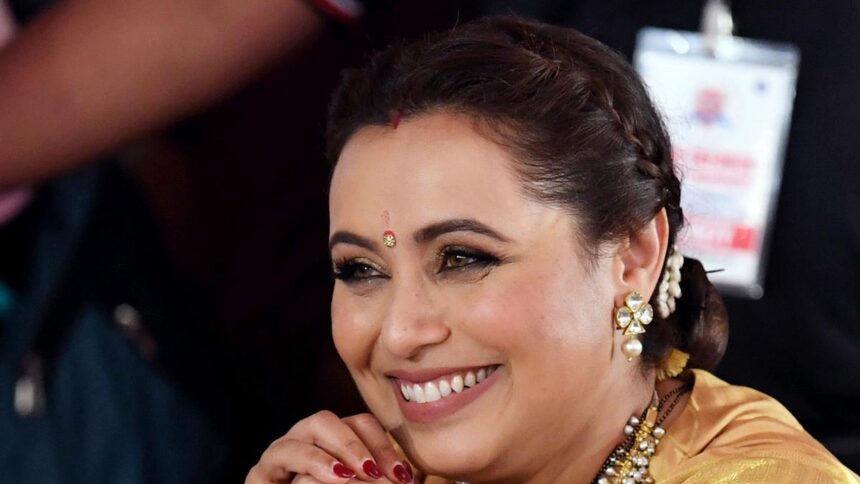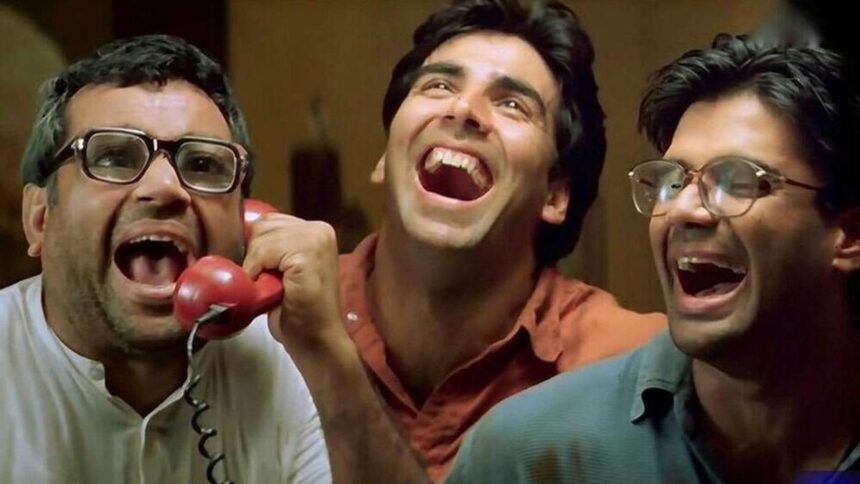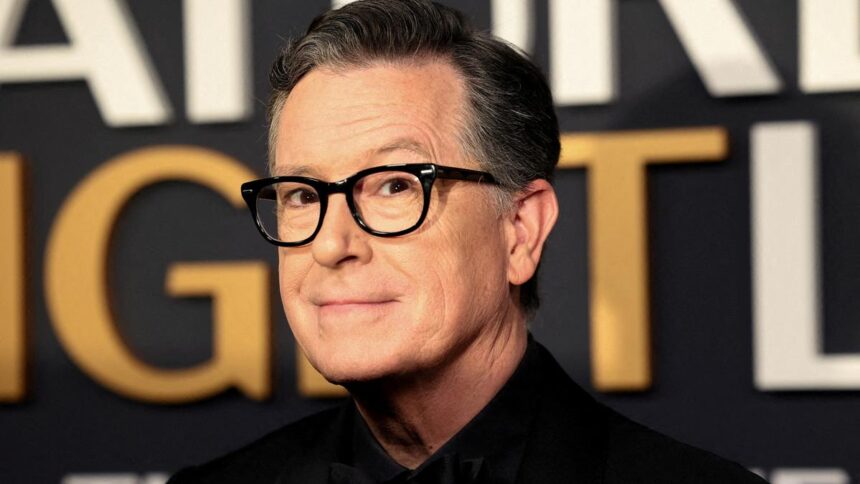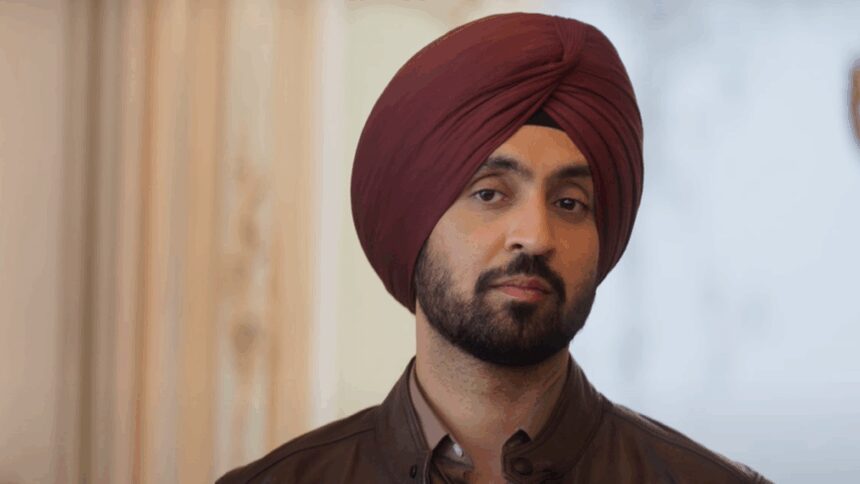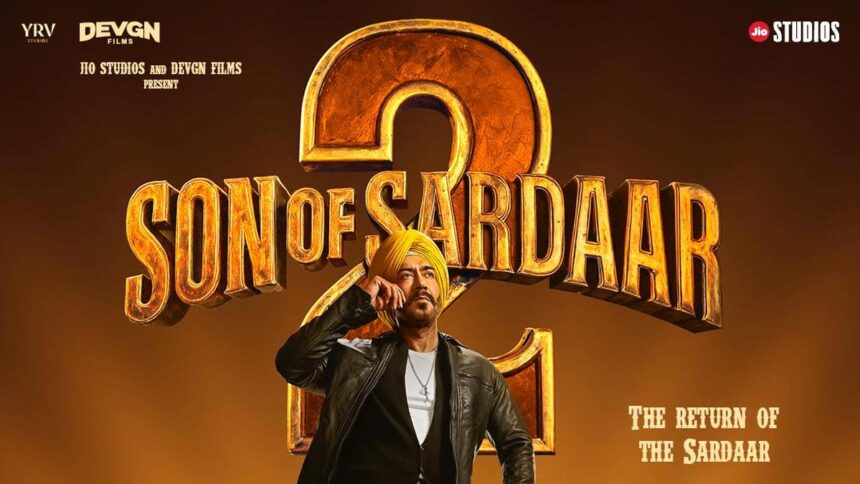Two weeks after the controversy over the 71st National Film Awards, where The Kerala Story won Best Director and Best Cinematography despite significant backlash, a similar debate has arisen around the trailer of Param Sundari starring Janhvi Kapoor and Siddharth Malhotra. The criticism focuses on cultural representation and perceived stereotypes, echoing the earlier outrage.

Adah Sharma’s Shalini Unnikrishnan from Thiruvananthapuram in The Kerala Story is a victim of forceful religious conversions to join an Islamic terrorist faction. To emphasise her Malayali identity, she is attired in a half-saree and jasmine flowers in her hair, even to a pub. Shalini’s fluent Hindi is sprinkled with mispronounced Malayalam words to “mallufy” the character.
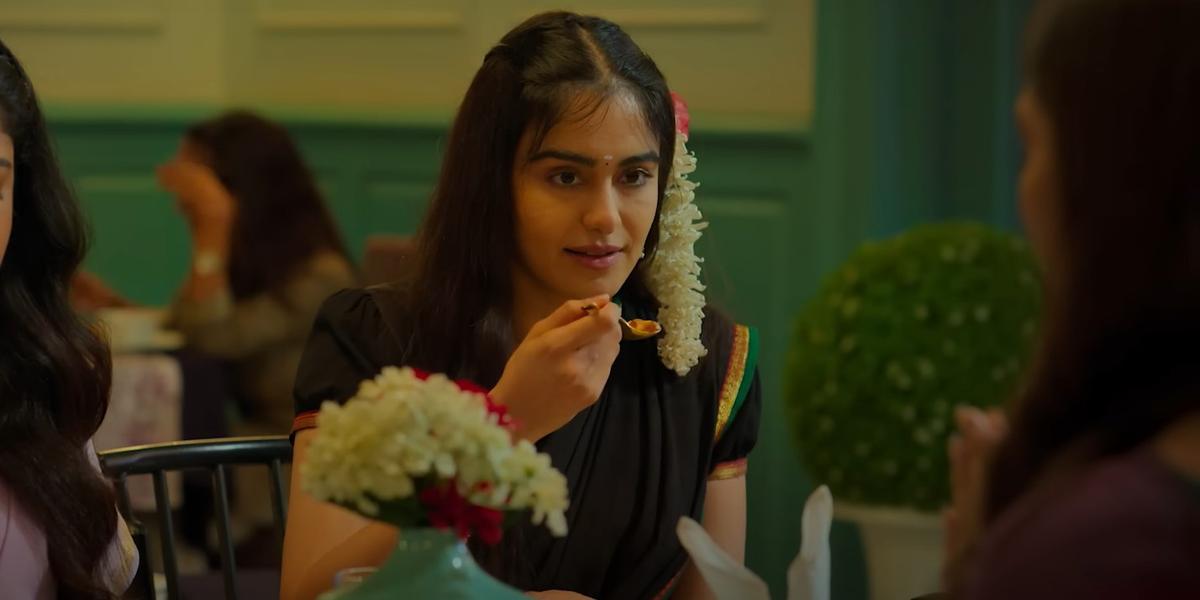
Adah Sharma as Shalini Unnikrishnan in The Kerala Story
| Photo Credit:
SPECIAL ARRANGEMENT
Thekkapetta (or makeupitta, meaning wearing makeup, as recorded by few content creators) Sundari Damodaran Pillai in the Maddock Studios production adapts a few moves from the Shalini Unnikrishnan playbook—a protagonist who is unable to even correctly pronounce her name, Malayali goons who are experts in Kalaripayattu (an indigenous martial arts form), an abundant supply of coconut trees and backwaters, Mohiniyattam, Mohanlal and most importantly, mullapoo (jasmine flower). Phrases such as “Bloody thenga (coconut)” and “manunni” (idiot) were used in the trailer to further convince the audience that Sundari is a Malayali. The distorted family name could be Thekkepattil, which has not been confirmed by the makers yet. They have also been accused of reporting reels by content creators who have criticised the trailer and questioned the female lead’s pronunciation and casting choices.
According to the latest song, ‘Danger’, from Param Sundari, a new notion has been established that Malayalis are dangerous wearing red saris.
Let’s look at a few convincing Malayali characters from Hindi films, which had a less polarising take on the characters from the Southern state.
Preeti Zinta as Preeti Nair in ‘Dil Se’ (1998)
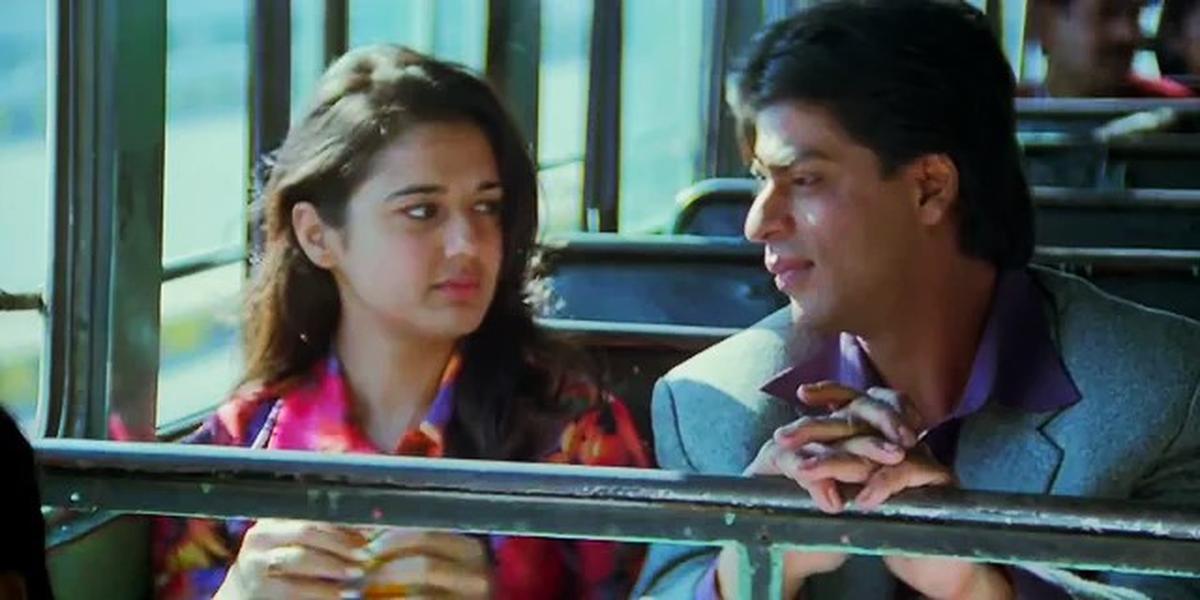
Preity Zinta as Preeti Nair in ‘Dil Se’.
| Photo Credit:
SPECIAL ARRANGEMENT
The Mani Ratnam film is the last addition to the veteran filmmaker’s trilogy on terrorism. Dil Se, headlined by Shah Rukh Khan and Manisha Koirala, focused on the insurgency in Kashmir, and Shah Rukh plays radio jockey Amarkanth Varma in the movie, who falls in love with Meghna, played by Manisha, a separatist.

Preeti Zinta, in her debut film, is convincing as a young Malayali woman. Preeti’s charm draws Amar to her, and even though her Malayalam is not perfect, her characterisation is not laced with stereotypical quirks. And who can forget ‘Jiya Jale’, crooned by Lata Mangeshkar, with visuals shot by Santosh Sivan. The Malayalam verse starting with ‘munthiri thanji konchiko’, sung by MG Sreekumar, is iconic too.
Preeti’s characterisation is not weighed down by her linguistic identity, and she doesn’t resort to the formulaic “ayyayyo” to convey disappointment. Her use of the word “mandan” doesn’t come off as jarring.
Rajkumar Rao as Deepu Sebastian in Aligarh (2015)
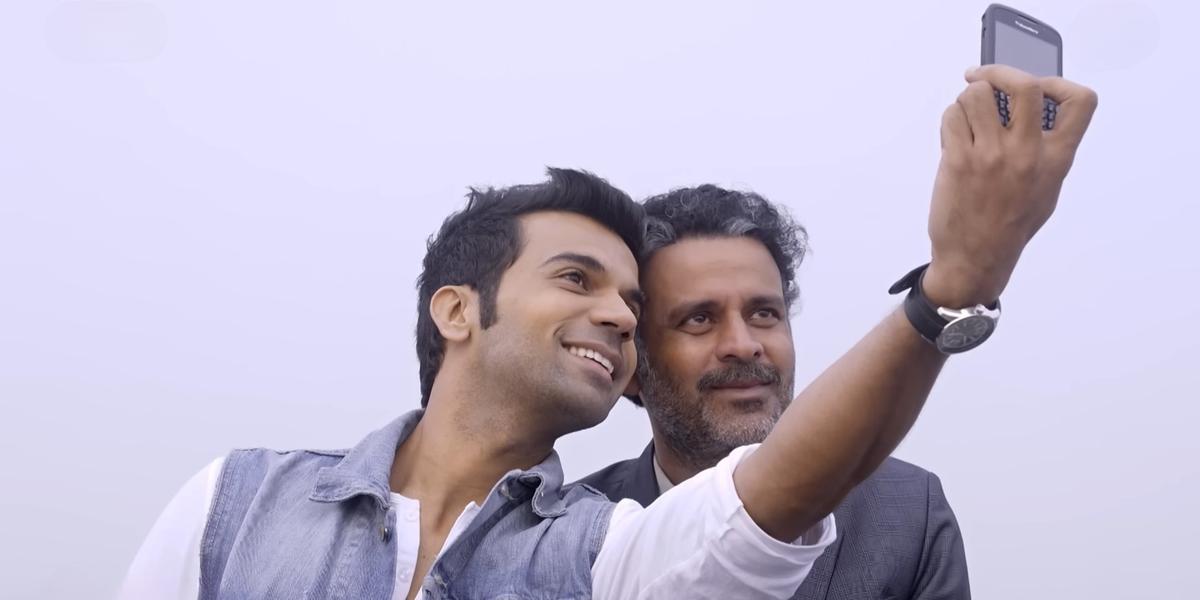
Rajkumar Rao as Deepu Sebastian in Aligarh
| Photo Credit:
SPECIAL ARRANGEMENT
Hansal Mehta’s Aligarh, based on the life of Professor Ramachandra Siras, an academic who was discriminated against due to his sexuality, has Manoj Bajpayee and Rajkummar Rao in the lead. Rajkummar’s Deepu Sebastian is a journalist who stumbles upon the professor’s story, whose perspective undergoes a gradual metamorphosis as he interacts with Ramachandra Siras. Aligarh explores the beautiful friendship between the two.
Deepu is a Malayali by origin, and in one scene, we see him speak smoothly to his mother in Malayalam, without drawing much attention to his dialogue delivery. The movie’s subtle nature reflects in Rajkumar’s depiction of Deepu, which prevents his character from going over board.
Padmapriya as Radha Menon in Chef (2017)
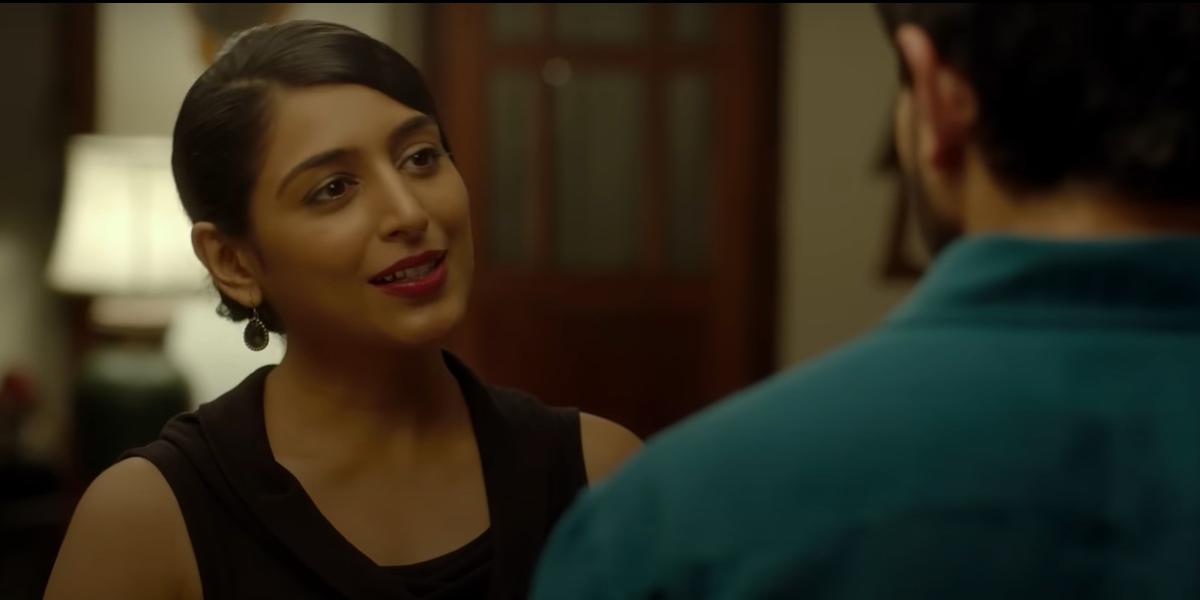
Padmapriya as Radha Menon in Chef.
| Photo Credit:
SPECIAL ARRANGEMENT
Released in 2017, the official Hindi remake of the John Favreau directorial Chef (2014) starred Saif Ali Khan in the lead. The movie, directed by Raja Krishna Menon, is about a chef whose only passion is cooking as he fails to spend time with his estranged son.
Roshan Kalra, played by Saif, is separated from his wife, Radha Menon, played by Padmapriya, and their son Arman. Roshan visits Radha in Fort Kochi, in Kerala, for a second chance with his son. While Radha is a dance instructor in the movie, it is not used in the stereotypical sense of fetishizing the profession. Padmapriya, an actress who has worked primarily in Malayalam films, is portrayed as a strong parent to Arman.
Parvathy Thiruvothu as Jayashree Shashidharan in Qarib Qarib Singlle (2017)
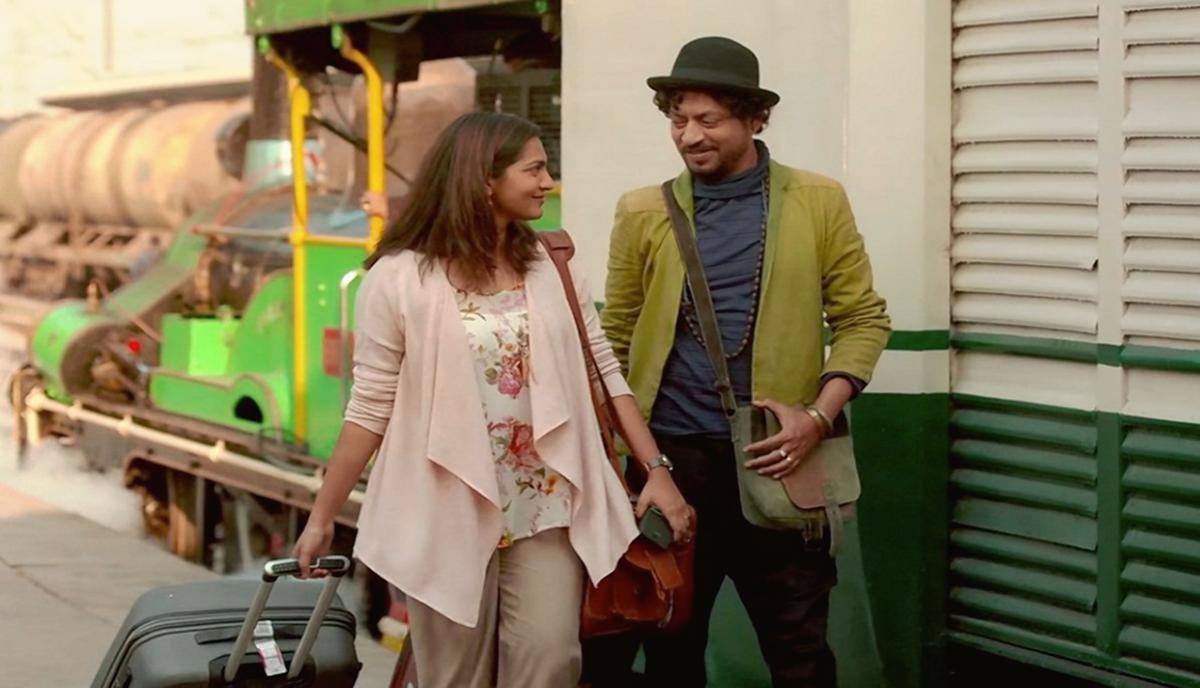
A still from the film Qarib Qarib Singlle
| Photo Credit:
SPECIAL ARRANGEMENT
Qarib Qarib Singlle, directed by Tanuja Chandra, is a romcom starring the late Irrfan Khan as Yogendra ‘Yogi’ Kumar Devendra Nath Prajapati and Parvathy as the widowed Jayashree, who cross paths on a dating website. The diametrically opposite characters set on a journey to meet Yogi’s former lovers, and the movie progresses through these encounters.
Parvathy, a familiar face in Malayalam movies, as Jayashree, is a breath of fresh air. In a hilarious moment, Jayashree yells at Yogi to get off the train, saying, Vegam erang kazhuthe! (’Get down fast, you donkey’, in perfect Malayalam). That’s an indicator of differences between the characters. This is another example of how a sudden emotion can be expressed in one’s mother tongue. The explicit words feel natural when they aren’t translated directly by AI.
Neeraj Madhav, Dinesh Prabhakar, and Zarin Shihab in Family Man season 1 (2019)
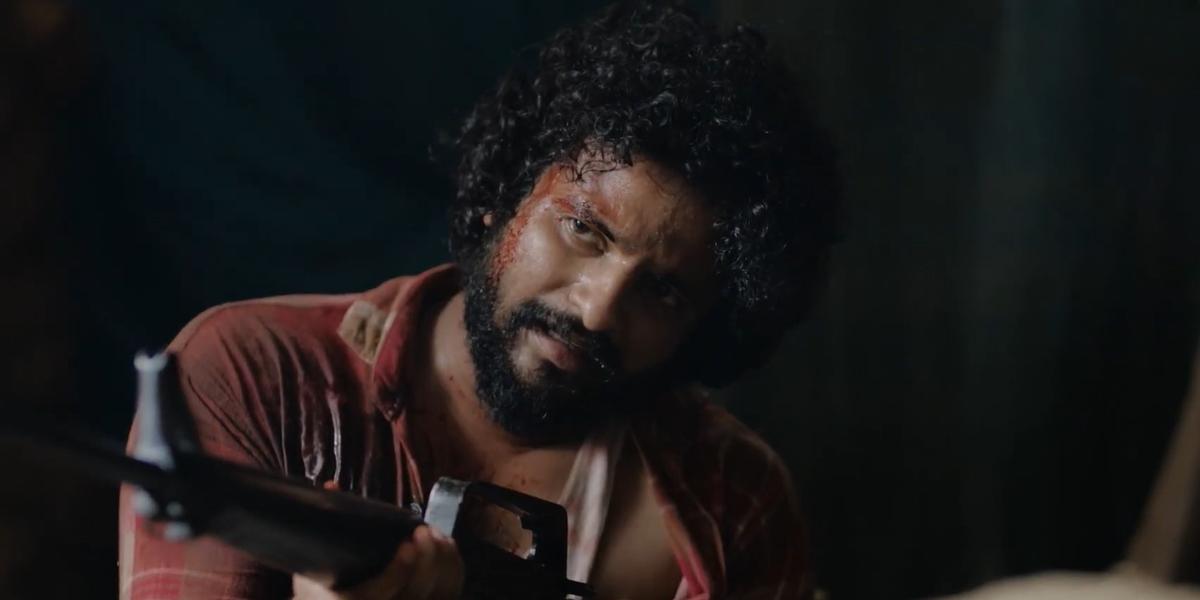
Neeraj Madhav as Moosa in ‘Family Man’Season 1.
| Photo Credit:
SPECIAL ARRANGEMENT
Creators Raj & DK have been lauded for their insistence on accurately representing the cultures of their characters. The casting of Vijay Sethupathi as Michael in Farzi and the Malayali trio of Neeraj Madhav, Dinesh Prabhakar, and Zarin Shihab in the first season of Family Man is a testament to this quality.
Manoj Bajpayee as Srikant Tiwari, a senior officer in the National Investigative Agency, headlines the series. Moosa Rahman and Asif, played by Neeraj Madhav and Dinesh Prabhakar, respectively, are two terrorists. Moosa, initially considered trivial to the terror mission, is later found to be one of the key players. The actor pulls off a convincing performance in conning the task force and doesn’t fall prey to irksome gimmicks stereotyping the community.
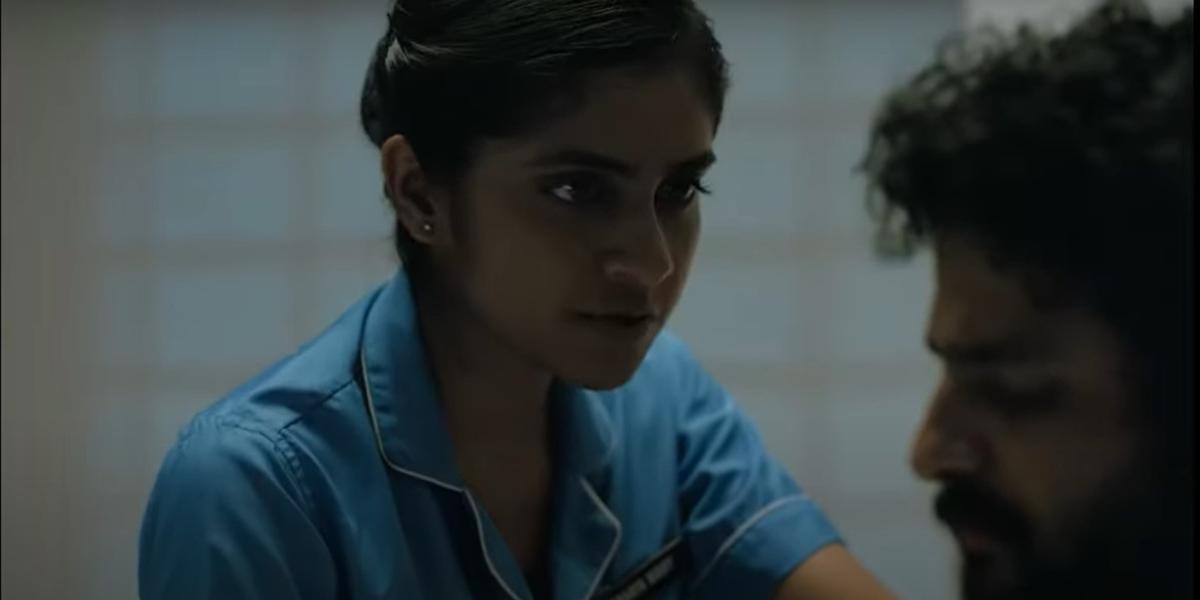
Zarin Shihab as Sahaya Mary in Family Man season 1
| Photo Credit:
SPECIAL ARRANGEMENT
Zarin Shihab plays Sahaya Mary, a nurse who falls for Moosa, in her onscreen debut.
Pearle Maaney as Sheeja Thomas in ‘Ludo’ (2020)
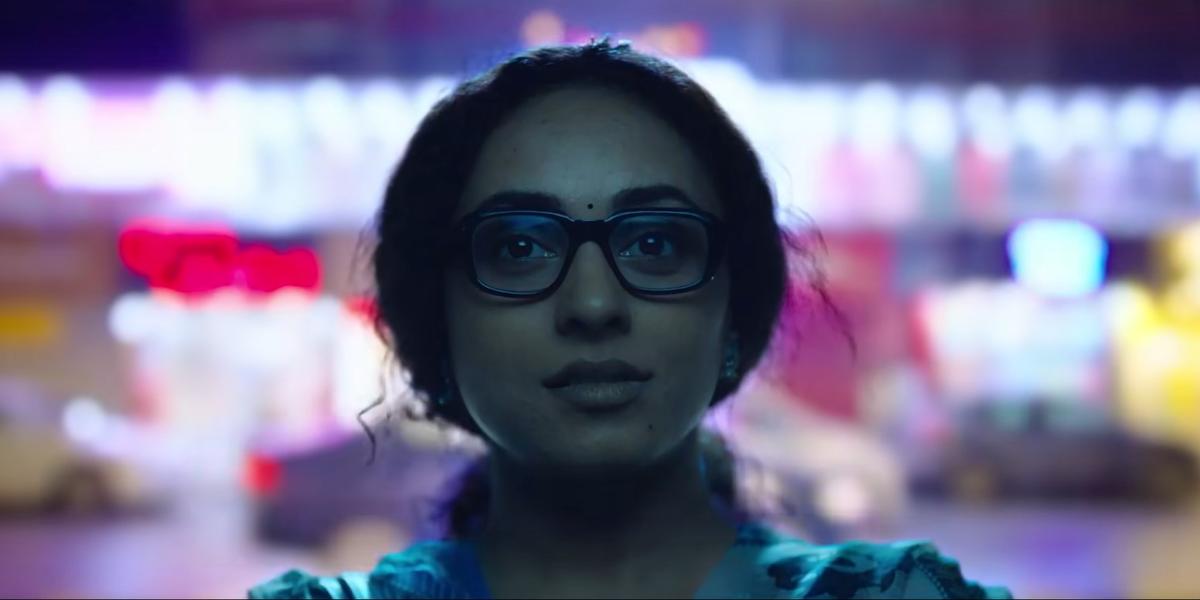
Pearle Maaney as Sheeja Thomas in ‘Ludo’.
| Photo Credit:
SPECIAL ARRANGEMENT
Another Malayali nurse character that stays with the audience is Pearle Maaney as Sheeja Thomas in Anurag Basu’s Ludo. Rahul Avasthi, played by Rohit Saraf, and Sheeja, are on the run, chased by Sattu Bhaiya (Pankaj Tripathi). The duo is unable to communicate with one another as Sheeja does not know Hindi. In one of the scenes, Sheeja even shares a moment with a Malayali DJ and immediately starts vibing to Malayalam songs.
Sheeja in Ludo is the perfect example of a quirky character in an offbeat movie. The maker doesn’t fall back on the immediate coconut oil and “Malayalis are alcoholics” gags. But he shows Sheeja getting unhinged under the influence and dancing with a fellow Malayali. This is in fact an ode to a known Malayali trait of finding another Malayali from a crowd, and asking them “Nattil evdeya? (Where are you from in Kerala?)”.
Kani Kusruthi and Divya Prabha as Prabha and Anu, respectively, in ‘All We Imagine as Light’ (2024)
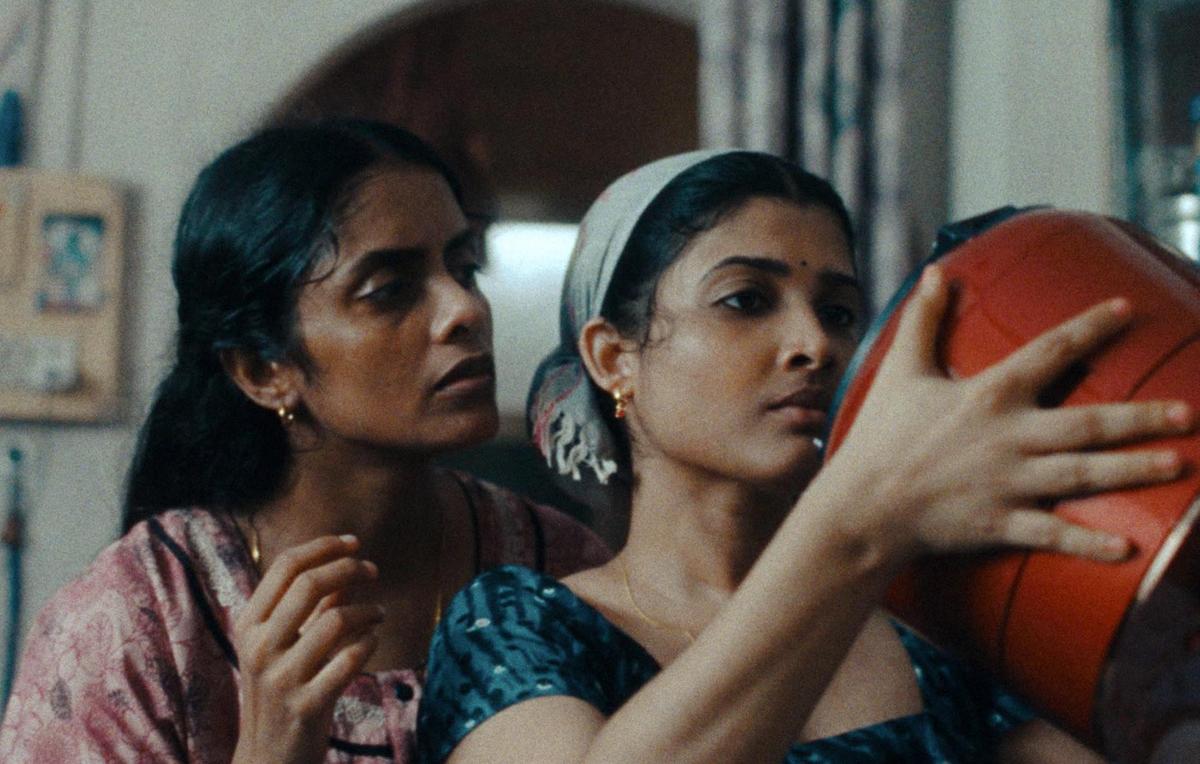
Kani Kusruti and Divya Prabha in a scene from ‘All We Imagine As Light’.
| Photo Credit:
AP
All We Imagine as Light, by Payal Kapadia, gained global attention by winning the Cannes Grand Prix, exploring the lives of two Malayali nurses in Mumbai. The film features dialogues in Malayalam and Hindi. It boasts a cast of talented actors from Kerala, such as Kani Kusruthi, Divya Prabha, Hridhu Haroon, and Azeez Nedumangad.
Kani as Prabha and Divya as Anu were lauded for their impactful performances delving into the nuances of relationships and intimacy, exploring the lives of migrants who move to Mumbai, hoping for an improved living standard.
Similar to Aligarh, All We Imagine as Light’s beauty lies in its subtlety. Both the actors are Malayalis and are able to convey the emotions of displacement as experienced by those around them in real-life, aligning with a more realistic representation.



